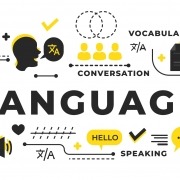Bilingual children have a less stereotyped view of the world
In January 2015, Concordia University published a study that shows that bilingual children have a better understanding of the world around them. According to the study, “bilingual children view their environment differently than others. They are more likely to understand that genetic information is not the only thing that makes the person who they are. They better understand the fact that humans, like animals, are shaped by experience. ”
Bilingual children view their environment differently than others.
The study was conducted on 48 children who are monolingual, bilingual and sequentially bilingual (children who learned a second language later on, around age 3 or 4).
The professors in charge of this study used an example of dogs and ducklings to question the children. What happens when ducks are raised by dogs? Will the ducklings quack or bark? Will they have feathers or fur?
“Our results are a striking demonstration that daily experience in an area – learning a language – can alter children’s beliefs in a number of areas, reducing their essentialist strategic bias, (…) bilingualism reduces essentialist beliefs; learning a second language early on can be used to promote the acceptance of social and physical diversity in humans,” explains Krista Byers-Heinken, Professor of Psychology.
The study concludes that sequentially bilingual children believe that over the years, a duck raised by dogs would bark and would run instead of fly.






















Leave a Reply
Want to join the discussion?Feel free to contribute!